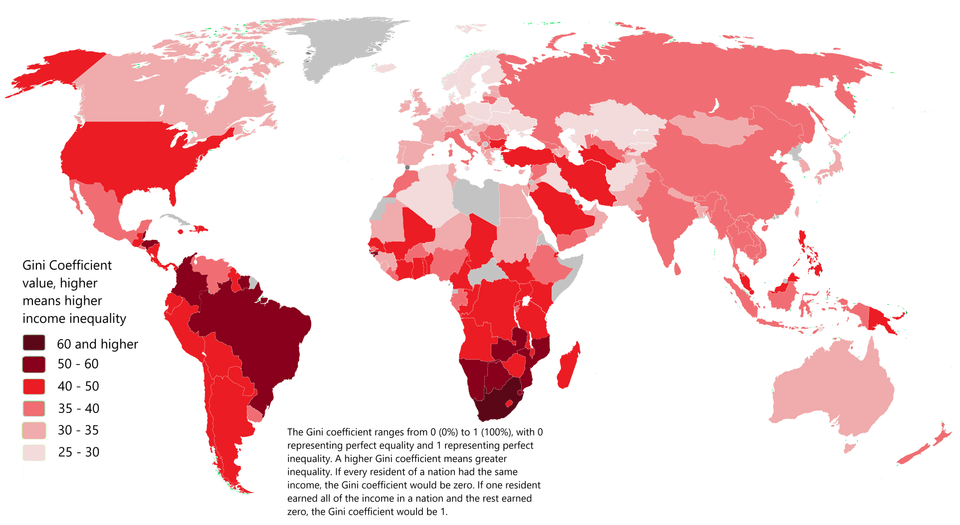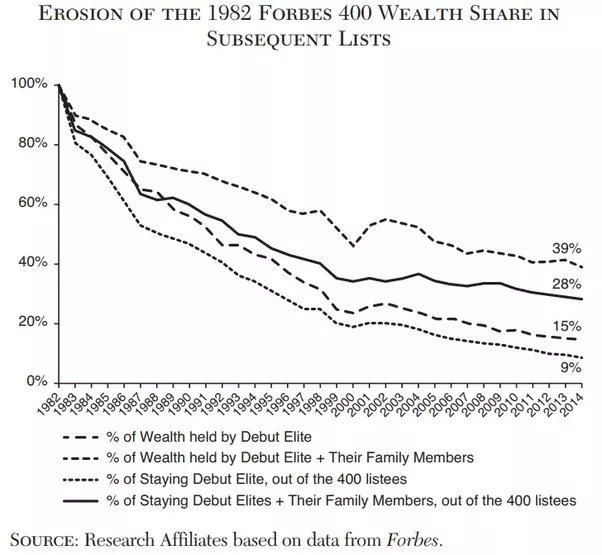Genetic Fitness and Prime Minister Salaries
Connections between effective government, moral prosperity and pruning of the capital allocation machine.
I recently came across this post on twitter:
With the attached screenshot:
One question is whether a $135,000 salary is "enough" to remove all distractions and impediments to performing the single most important job in your country while living in London and raising a family. My guess is it's not. If it's not, then the question should be why aren't we paying them more and what vulnerabilities in general are opened up by having professional politicians who are also cash strapped.
I think a more interesting question to be asking is whether the skill sets acquired in understanding capital allocation and investment decisions lend themselves favorably to good governance and social policy formation. I have a feeling this is true up to an extent. There would be other symptoms of a person having gained traits favorable for effective governance, material success just being one of them.
In general though I'd rather someone have become wealthy on their own merits rather than use their position of office to achieve this end during their terms, as so many others have done. Of course his income via investing and also salary are completely irrelevant when you look to see who's married.
So the question is more about the general principles of fairness in capitalism versus any particular indictment of this person's suitability for the role. E.g. if he was solely rich through marriage would it change your mind, or is it that he's so rich at all that's the issue as a PM, or more generally, that anyone is rich?
Robert’s paraphrased reply:
Now, keep in mind, there are 600 public officials who get paid more than the PM, sometimes a lot more. And on top most of them will still have their job in 12 months. So the PM salary looks like an anomaly. £135k pa of course doesn't make you mega rich by any means, but with all expenses paid due to the office you hold, no normal person would have any money worries (but see Boris....)
The main point: Should you just be able to 'earn' lifetimes of cash for doing nothing? By owning stuff - that you can then give to your children who can also earn lifetimes of cash for doing nothing - except they never even built the assets in the first place? I think the thought experiment of just increasing the level of disparity works.
This got me thinking - do people ‘earn’ lifetimes of cash for doing nothing? And does this wealth pass down generationally seamlessly?
Certainly its unavoidable as a Gini coefficient goes to 1.0 (one person owns everything) you get closer to a complete tyranny. So that's bad. It’s also not representative of how value is produced in society - one person can’t be responsible for all the good things in the world. Finding out what the acceptable level of inequality is really begs the question of wealth generation mechanisms in the first place - the right amount of inequality probably depends on whether wealth is generated in a good way.
To borrow an analogy from biology and machine learning, the role of markets and capital allocation in coordinating economic activity is to provide the effective 'loss function' or 'neuronal pruning algorithm' that allocates productive resources to where they produce the most value, diverting away from loss-leading businesses and towards profit-generating ones. The “Profit Motive” is nothing other than the statement that the human-experienced subjective value of some activity - pottery, music festivals, car factories - is greater than the value of whatever it took to do it. The profit margin then describes the value leverage of people getting together to do a certain thing, and the higher the leverage the faster resources accrue to the people with doing the most with them.
To the chagrin of deep-tech die-hards, in this sense software is an absurdly good thing for being able to cheaply replicate incredibly high value functionality for global populations with a bare minimum in material and energy when compared to say, manufacturing an incrementally better bicycle. Unsurprisingly software has made some people incredibly wealthy in this good, positive sense - for having done something valuable for so many people.
This fundamental relationship between rates of value creation and rates of wealth accumulation are why non-profit organizations will never have the substantive scale nor depth of impact as for-profit corporations in boosting the overall quality of material life, health, prosperity, but instead serve to cover the edge-cases where distributed decision-making drive towards bad equilibriums - tragedy of the commons, and etc.
Back to the British Prime Minister, however, who neither ran a profit nor non-profit organization but instead worked in finance - is wealth generated in such a way morally legitimate? If you consider individual capital allocators as both oriented towards profiting from collective market movements as well as trying to invest in under-resourced areas of long term value generation, clearly one is shoring up the positive purpose of capital allocation more than the other. For that reason I’d say day traders are providing almost insignificant value to society, apart from perhaps adding to overall market liquidity or else amplifying its volatility, while long-term thesis-driven investments in areas fundamental to prosperity - like biotech, energy, manufacturing, defense, etc - are doing something important and needed.
In general I think a steep reward gradient for people in that position maximizes the competitiveness and therefore fitness of solutions that emerge from that returns-seeking process, modulo the presence of Keynesian 'Animal Spirits,' or the propensity of people to give into herd-like speculative frenzies that drive boom and bust cycles. Buy-and-hold investors either in private or public equities that are constantly updating their world models and resist external shocks of herd thinking can well be the adults in the room and hold us back from excess Beanie Baby or CryptoPunk retirement fund-planning.
In other words to the extent it can help drive bottom-line quality of life improvements by helping direct economic growth, it’s actually morally good to profit by having made judicious investments in the right things, things that proved to be productive, wealth that would’ve otherwise been burned in a potlatch of consumer vanities. The largest question there is - how do you measure the value-add of those decisions, and is there actually effective backlash mechanisms for bad decision-making (2008, cough cough), or do people get off scot-free? Closing these loopholes is perhaps the strongest arguments for either paying politicians incredibly well, or why independently wealthy politicians are the most immune to corruption.
In general I don't think the social-moral issue of wealth is the fact of inequality but rather the process of stratification - we actually want people growing wealthy by creating valuable things, and using that wealth to do more of the same. Thats how things get better with time. The moral failure mode is beyond a threshold of wealth does there emerge a hereditary privileged class of rent-seeking landed aristocrats who monopolize economic and political appointments through nepotism and grift. This is far more a problem historically in the UK than in the US, which is where Rini built his wealth and early career.
An interesting historical fact is that generational wealth tends to decline quite rapidly if it's not intelligently managed, i.e. put to productive ends in productive ways, i.e. deployed in the fitness-maximizing competitive returns-seeking. The irony of growing up spoiled is it destroys the competitive shrewdness that comes from struggle - good times create weak men, so hereditary rent-seeking seems less an issue in the US than the UK. (https://nasdaq.com/articles/generational-wealth%3A-why-do-70-of-families-lose-their-wealth-in-the-2nd-generation-2018-10…).
I think the extent to which you do get hereditary rent-seekers is ironically proportional to the degree you justify active interventionist market policies, which can be motivated by any number of narratives. Contrary to just enabling rent-seeking, the steeper the reward gradient the more meritocratic is the allocation process. The limits we want to put in place are more for guarding the dignity of people struck by misfortune, or, the floor on quality of life. There’s a compelling case to be made that this quality floor is higher in Europe than it is in the US, despite Europe having far more entrenched hereditary aristocracy compared to the US’s faster wealth turnover.
Indeed over the long-term the overall improvement in quality of life for every wealth decile produced by a steeper-gradient, more efficient capital rewarding-and-allocating economic system in just a few generations makes even the most illustrious European monarchs material lives look shoddy and stifled in modern comparison, outside truly finite resources like real estate (which we can’t manufacture more of through judicious capital allocation, the counterexample being: orbital cities).
Probably the biggest risk in the political sphere is that policymakers lives become out of touch completely with the general public, for having never spent time in among commons despite sitting in the Commons. The ideal character for the effective management of capitalist democracies is then no doubt a person who has navigated and succeeded within that social system, achieving its uppermost ranks while starting in its lowermost.
More than any private wealth disparity at the time of assuming office, the greatest threat to effective democratic institutions are the professional politician class whose only means of self-enrichment is re-directing the apparatus of government away from their constituents interests and towards their own, something all too commonplace on both sides of the Atlantic.






